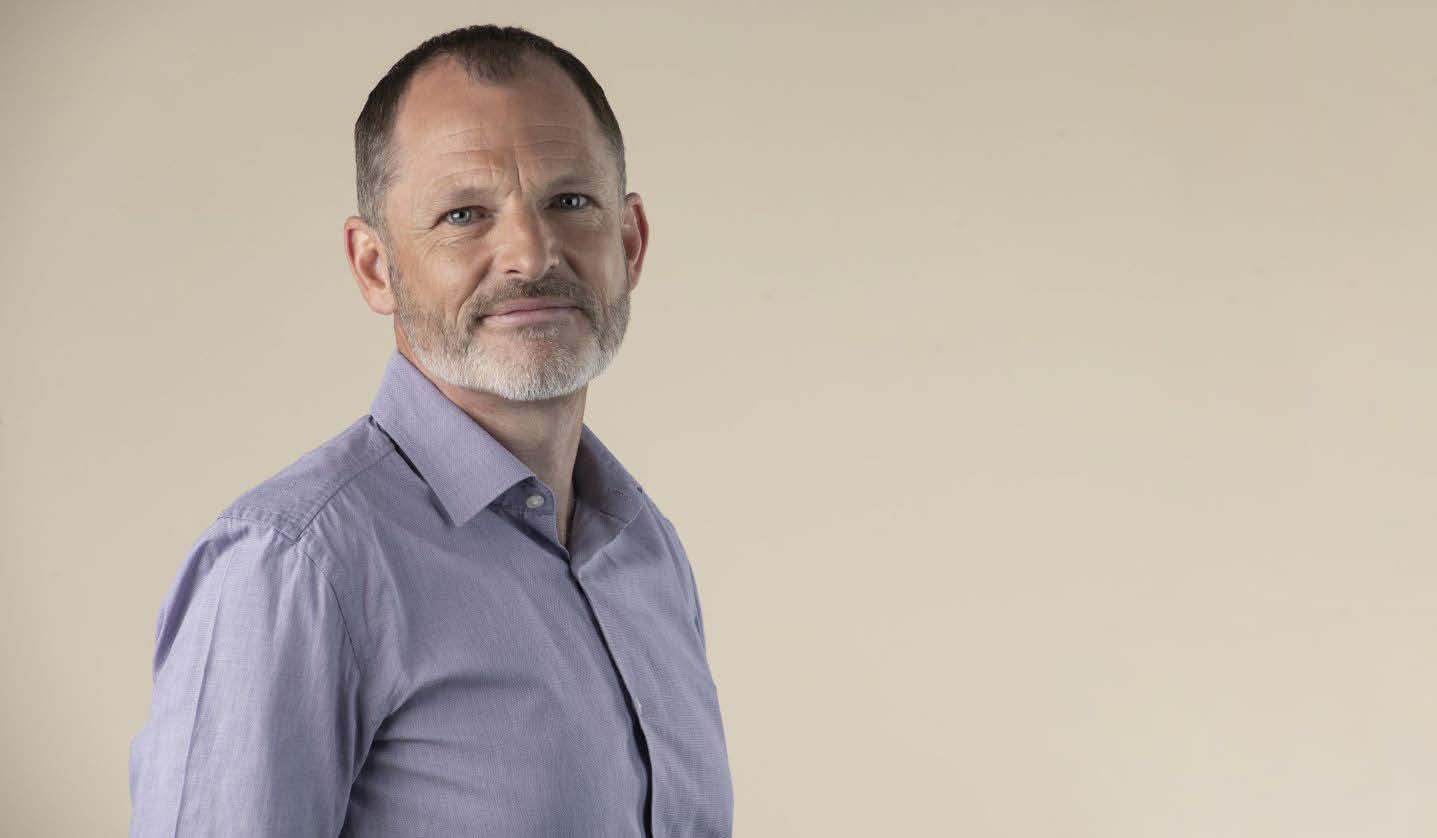
4 minute read
behind the boardroom
from Forum Winter 22
winter 22 behind the boardroom
Take a look behind our members’ boardrooms and discover what makes their businesses tick. In this issue, we chat with Tharsus founder, Brian Palmer, about his market leading robotics and automated machine business and the importance of a valuable board…
Advertisement
The story of Tharsus is one of innovation and evolution. The Tharsus we know today began life in 2007, after originally being established as a sheet metal fabrication business in 1997 and diversifying 10 years later. The sheet metal arm of Tharsus still exists as a market leader under the name Universal Wolf, but 2022’s Tharsus is now worlds away from its humble sheet metal beginnings. Founder Brian Palmer has led Tharsus through various stages of growth and development in order for it to become one of the most cutting edge robotics and engineering companies in the world. Working across sectors such as agritech and food, energy and renewables, healthcare, logistics and warehousing, and transport, there’s no complex challenge too great for the Tharsus team. With this exponential growth and diversification over the last two decades, came the need for a meaningful board to help Brian take the business to the next level. It was in 2012 that Brain set out to construct his first ‘proper’ board for Tharsus. “About 10 years ago we realised there was an opportunity to grow the business beyond the scale that I had experience of,” says Brian. “At first, I wanted somebody on board that had some practical experience of that growth journey. That was one of the critical reasons for establishing a board. The other reason was, as an owner/manager, you’re only really accountable to yourself. I think bringing some accountability into the business was necessary too. “I approached somebody to find me a chairman. I had some very specific experience I was looking for, I needed someone that had some knowledge in technology and engineering. “I was motivated by somebody who could guide growth in the business. There’s a lot of different phases you go through when the business scales and you’ve got to change what you do and how you do things as things develop. You’ve got to delegate more and have systems and processes in place; you can’t control everything and know everything that’s going on anymore.” After finding the right man for the job in David Williams, a businessman with decades of experience in naval architecture and engineering, the pair went on to construct the board further. Brian’s next aim was to bring on non-executive members to the board that actually brought real value to the business. Without the need for investment, Brian was free to prioritise skills over any need to tick boxes. “Some people have boards because they’re told they need to have
25

boards,” Brian explains. “We don’t have any external investment, so we don’t actually need non-execs. That’s where we’ve been quite unusual. “So, we’re not trying to tick a box with investors. My aim is always about trying to get value from our board and use it to help drive growth to the business. It’s not about satisfying an investor that we’re well managed or anything like that. “I think there are a lot of boards that have serial non-execs that turn up to get their homework marked - they nod and let the business get on with it. I think that’s a missed opportunity. “Every non-exec position on our board is there to add value. Otherwise, what’s the point?” For Brian, adding experience and knowledge to the business has always been what the group board at Tharsus has been about. Many of their non-executive members are people who have achieved incredible things in their respective fields. One of which had a hand in creating one of the biggest household brands the world has ever seen. “Martin McCourt is one of our non-execs. He internationalised Dyson for James Dyson,” Brian says. “He was the Chief Executive at Dyson for 15 years - a serious individual, UK Businessman of the Year and that sort of thing. “We’ve got some very capable individuals with a huge amount of experience. To have them sitting and listening to people drone on about reports and what they’ve done without any insight, there’s no value in that. “You’re investing quite heavily in these board meetings, so you want an active debate around strategy, what situation the business is in now, what you should be doing, what the focus areas should be, what is the right strategic direction. Things like that.” Despite the Tharsus board featuring some amazing business brains, it’s far from set in stone. As far as Brian is concerned, you need to keep the board fresh and let it evolve alongside the business. “You’ve got to refresh your board, it’s not a static thing,” Brain continues. “When we first created the board we were probably turning over around £15m - last year we turned over £90m. The types of people you need leading an organisation that’s six times the size of what it used to be, it’s a different beast. You need different skills, so the board can’t be stagnant - It’s constantly evolving with the business. “At the end of the day, you need to use your board as a resource. Seek external input to your business - either through mentors or nonexecutive board members. I think there's a huge opportunity for you and your business when you use your board to add value and not just to tick boxes.”









